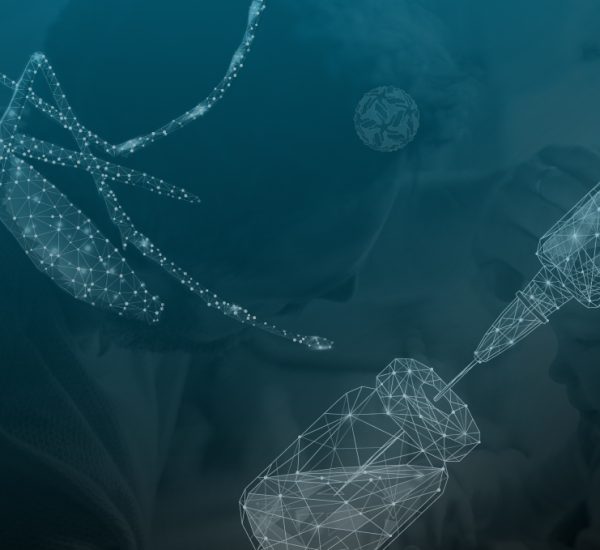KOL Spotlight Interviews is a segment where we interview experts from various fields on their expertise and insights that help shape the diagnostic and pharmaceutical industries. This month, we had the pleasure of speaking to Dr. Balazs Halmos, Professor of Medicine, Chief, Thoracic/Head & Neck Oncology, Montefiore Medical Center/Albert Einstein College of Medicine.
Dr. Halmos is a thoracic oncologist who specializes in tumors of the chest cavity (e.g lung cancers, thymic cancers and gastroesophageal cancers). He oversees the clinical trials office at Montefiore Medical Center/Albert Einstein College of Medicine in the Bronx, New York, in addition to directing clinical research. Dr. Halmos has also been named the first Director of Clinical Cancer Genetics and Clinical Medicine Professor at Einstein.

In this interview, Dr. Halmos shared his experience as an oncologist during the COVID-19 pandemic, particularly with hematological malignancies, or blood cancers. We learned about the impact of vaccines on blood cancer patients and how treatment for this cancer can affect the severity of COVID-19 and other infectious diseases. Click here for the complete interview.
What was like during the early days of COVID-19 pandemic?
During the spring of 2020, New York City (NYC) was an epicenter of the coronavirus disease 2019 (COVID-19) outbreak in the United States.1 Dr. Halmos shared with us his experience at Montefiore Medical Center during that period. On March 9th, 2020, the first patient at Montefiore Hospital was diagnosed, about a week after the first reported case in NYC. Within a month, Dr. Halmos witnessed an extraordinary flood of COVID-19 patients, occupying 95% of all hospital beds. As a result, Montefiore Hospital had to open additional ICU units every week to manage all of the COVID-19 patients. Dr. Halmos also explains that this time “was very, very difficult, traumatizing for many, but also provided us in oncology an opportunity to very early on initiate research to understand the impact of COVID-19 for our patients with a different cancer diagnosis.”
What impact does COVID-19 have on cancer patients?
Cancer and cancer treatments can influence the immune system, which is the body’s defense against pathogens (viruses, bacteria, and fungi) that cause infections. For this reason, these patients are called “immunocompromised”, which means that their immune system is not functioning effectively. Consequently, they are more vulnerable to developing serious infections. Hematological malignancies are blood cancers that occurs when abnormal cells in the blood grow out of control. There are three types of hematologic malignancies leukemia, lymphoma and multiple myeloma. Dr. Halmos explains, “Patients with hematological malignancies and lung cancer are being impacted the most. We’ve initiated a series of studies up until today, hopefully making an impact”.
What is the importance of COVID-19 vaccination in cancer patients?
Scientific studies have shown that vaccination decreased the number of hospitalizations and deaths, even with the emergence of the variants of concern.2 Most people, including some cancer patients, generate a significant immune response to the vaccine, which mimics a real infection without causing disease.3 In healthy people, the body’s defense (the immune system) produces a response (like antibodies) that protects us from severe disease caused by a future infection. However, as Dr. Halmos explains, this is not the case for patients with certain blood cancers (hematological malignancies), who do not produce a lot of antibodies following vaccination or infection and are therefore at risk of developing a severe disease. Dr. Halmos emphasizes the importance of vaccination and the impact on some cancer patients “As soon as the vaccinations became available, we set up a number of different studies to understand how patients recover from a COVID-19 infection. And we have noticed that most of our patients develop excellent detectable immunity after COVID-19, except for some patients with certain hematological malignancies, having received certain very immunosuppressive treatments that might just not have allowed that immunity to develop.”
“This knowledge allowed us to understand that this particular patient population needs to be protected, in addition just to the standard vaccinations, and quickly allowed us to refocus on booster vaccinations and how they can help beyond the usual measures”
The good news is that these patients with certain hematological malignancies benefited from the booster vaccination, having a detectable antibody response.4
Are cancer patients still at risk for severe complications even after receiving a COVID-19 vaccine?
In most blood cancer patients, a weakened immune system caused by the disease, the treatment, or a combination of the two may be responsible for an increased risk of serious or even fatal infections.5 Therefore, these patients must be closely monitored, treated and supported. Dr. Halmos described some measures to do this “We might have some tests to understand the level of vulnerability. Many clinicians are using antibody tests, to gauge if their patients might have responded to the vaccines.” “And we’re seeing, fortunately, a wave of new measures, protective measures with antibodies that we can use, better antiviral medicines if a patient gets an infection as well as now hopefully very specific vaccines that we’ll be able to use that hopefully will continue to improve the outcomes.”
Why does the treatment for blood cancer (hematological malignancies) make some patients more vulnerable to develop severe COVID-19?
Some cancer treatments, particularly those used to treat hematological malignancies, called immunosuppressive therapy, damage our immune system. This is because the cancer is in some of the immune system cells and therefore, weakening the immune system will slow, stop and/or destroy cancerous cells. However, immunosuppressive therapies will also inhibit the production of antibodies that are involved in protection against infections. The current COVID-19 vaccines induce the production of antibodies to protect us from SARS-CoV-2 infection. However, immunocompromised patients may not produce enough antibodies for protection because of their treatment. Dr. Halmos says: “Patients who have received this very specific, highly immunosuppressive, therapy will have lower levels of detectable antibodies, or they will not have detectable antibodies at all. They will remain more vulnerable to new waves of the infection”
Why is important to test the T-cell response to SARS-CoV-2 infection and vaccination in blood cancer patients?
Our immune system consists of two types of response: 1) antibody response, that attacks the virus or bacteria, and 2) T-cell response, that helps in the production of antibodies and attacks infected cells. Studies, including those from Dr. Halmos’ team, have shown that immunocompromised patients might not have an antibody response due to the treatment but might have a T- cell response that plays a role in protection. For this reason, is important to measure the T-cell response. “We also have emerging tests to look at the T-cell compartment, as well. And I find that very important, especially in patients who have received very specific treatments that might impair antibody mediated immunity or be able to measure the T-cell compartment that can still provide appropriate protection in a way from very poor outcomes.”
Are immunosuppressive therapies only used for blood cancers?
In addition to cancer patients, immunosuppressive therapies are also given to patients with other diseases, for example autoimmune diseases, HIV or organ transplant recipients. About 3% of the population in the United States is considered moderately-to-severely immunocompromised, making them more at risk for serious illness from COVID-19, even after vaccination.6 Immunocompromised patients are not only at risk of developing severe COVID-19 but also severe diseases from other infectious diseases.6 Dr. Halmos commented “While, of course, all of us remain excessively focused on COVID- 19, let’s not forget that our patients, especially patients that are highly immunosuppressed, are very predisposed to a broad spectrum of other infections and being able to learn the level of risk introducing risk mitigation strategies in terms of prophylactic antibiotics, antifungals, etc., is very important”.
References
- CDC. COVID-19 Outbreak — New York City, February 29–June 1, 2020. https://www.cdc.gov/mmwr/volumes/69/wr/mm6946a2.htm. Published 2020. Accessed December 15, 2022.
- Watson OJ, Barnsley G, Toor J, Hogan AB, Winskill P, Ghani AC. Global impact of the first year of COVID-19 vaccination: a mathematical modelling study. Lancet Infect Dis. 2022;22(9):1293-1302.
- Thakkar A, Gonzalez-Lugo JD, Goradia N, et al. Seroconversion rates following COVID-19 vaccination among patients with cancer. Cancer Cell. 2021;39(8):1081-1090.e1082.
- Thakkar A, Pradhan K, Duva B, et al. Efficacy and longevity of immune response to 3<sup>rd</sup> COVID-19 vaccine and effectiveness of a 4<sup>th</sup> dose in severely immunocompromised patients with cancer. medRxiv. 2022:2022.2007.2005.22277281.
- Correction Notice: Serologic Responses to COVID-19 Vaccines in Hematological Patients Are Predominantly Impaired in Lymphoid but not in Myeloid Malignancies. Hemasphere. 2022;6(6):e731.
- Yale, Medicine. Experts discuss impaired immune systems, in light of recent COVID-19 vaccine recommendations. https://www.yalemedicine.org/news/what-does-immunocompromised-mean. Published 2022. Accessed January 9, 2023.





